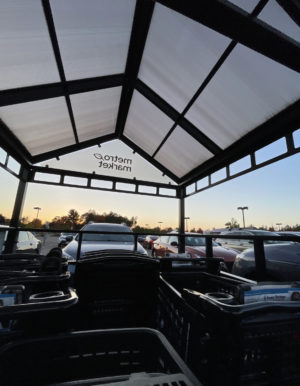The Case for Cannabis in Wisconsin
November 2, 2021

On March 4th 2021 Montana, a majority republican state, fully legalized cannabis making it one of the few red states to do so. A month earlier in Wisconsin, Governor Tony Evers Proposed legalizing cannabis in a 2-year budget plan. The budget was shut down by republicans in the state senate.
What’s the difference between these two cases? The truth is the outcomes of these 2 bills shouldn’t be any different. Full legalization of both medical and recreational marijauna would be beneficial to the state of wisconsin. But the state’s republican legislature will be a massive roadblock to progress.
First of all, legal marijauna is popular, really popular. Recreational marijauna is already legal in 18 states, and medicinal cannabis is legal in 17 more states. A Pew Research poll showed that only 10% of the total U.S population supports full prohibition of cannabis. Another poll from Marquette University Law School shows 83% of Wisconsinites support medical marijaunna, while 59% support full legalization. This data shows that this issue has support across the aisle with voters, not so much with Wisconsin politicians.
Second, the heavy criminalization of marijaunna has disproportionately affected people of color more than white people. The War On Drugs goal was supposedly to make America a healthier and safer country, But inside the walls of the West Wing its purpose was much more insidious.
The War On Drugs was targeted at enemies of Nixon’s White House, more specifically people of color. Richard Nixon’s domestic policy chief, John Ehrlichman even said it himself. Ehrlichman stated at an interview in 1994 that “ We knew we couldn’t make it illegal to be either against the war or Black, but by getting the public to associate the hippies with marijuana and Blacks with heroin, and then criminalizing both purchase, walk into a dispensary and have access to cannabis. Those are hard-earned tax dollars that are leaving our state and going into Illinois,”.heavily, we could disrupt those communities. We could arrest their leaders, raid their homes, break up their meetings, and vilify them night after night on the evening news. Did we know we were lying about the drugs? Of course we did.”.
The effects of this policy are still heard today. According to a 2021 report from the Milwaukee County District Attorney’s Office, black people in Wisconsin are 4 times more likely to be detained for cannabis possession than white people and 4 times more likely to be convicted for cannabis possession. Since this kind of policy is rooted in racism and descrimination it shouldn’t be allowed to stand.
Third, Wisconsin is falling behind other states. Both Michigan and Illinois have fully legalized marijauna, and Minnesota has legalized medical cannabis and decriminalized marijauna as a whole. Wisconsin is currently falling behind other states in the region when it comes to cannabis law and the cannabis industry. As Representative Katrina Shankland of Wisconsin´s 71st District puts it, “Wisconsin will be an island,”. “We’ll be the only state in the Midwest that hasn’t enacted some kind of marijuana reform, whether it’s decriminalizing, whether it’s legalizing medical marijuana or whether it’s legalizing full recreational use.”
Another thing Wisconsin is missing out on is the cannabis industry as a whole. As Rep. Melissa Agard of Wisconsin’s 16th District puts it, “People can, as I am right now, drive for 45 minutes from Madison across the border and legally.”
Some opponents to the legalization would state that legalizing cannabis would increase teen usage of the drug exponentially. “Legal marijuana will only tempt more teens.¨ says Jessica Hugdahl, Director of Arizona Students Against Destructive Decisions. But that’s really not the case. The Journal of the American Medical Association shows youth usage has had a slight down tick in states that have legalized recreational marijauna.
Even in states where cannabis is illegal, marijauna is still readily available based on Wisconsin’s Department of Justice numbers. In 2019 the WDoJ recorded 16,044 marijauna possession arrests. This data shows that marijaunna is still prevalent in Wisconsin, even though it is still criminalized.
In conclusion, Wisconsin can and should legalize marijaunna fully in the state. Cannabis legalization is a heavily supported and somewhat bipartisan issue among voters. But is unlikely to be legalized in Wisconsin. It most likely won’t be legalized in the state unless there’s a change in the state legislature or it is legalized federally.




































































